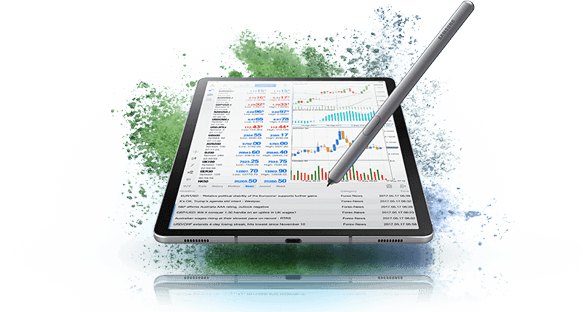Global Economic
Calendar For
Forex Trading
Access all important upcoming global economic news, events and activity that impact financial markets in one place with the FP Markets economic calend
The Economic Calendar is an essential tool for planning trades and future orders. It lists important upcoming market events along with economic activity and indicators that could impact global financial markets including Forex. They fall into a range of key categories including central banks, inflation, interest rates, economic activity and politics. The greatest benefit of the Economic Calendar is that the upcoming news and events can be accessed in real-time from a single page with details, charts and descriptions all provided.


How to Use the
Economic
Calendar?
It is important to distinguish between microeconomic and macroeconomic activity. Some news may impact a particular city such as Tokyo in Japan or Dallas in the United States. In other circumstances, a country like Germany may benefit or be hindered by economic news more than its neighbours. Extending further out, an announcement by the ECB is likely to have a greater influence on Eurozone markets than those of African nations.
Keep track of the leading economic index or a range of composite indexes such as the coincident index of major economies. Use the information at hand to help gauge the economic sentiment and volatility levels of the instruments that you are trading.
Economic Calendar
Categories
Bond Auctions
The flow of money can substantially move foreign exchange rates. The USD 3-Month Bill Auction and 6-Month Bill Auction are among the common treasury rates that are tracked. Data on long-term treasury rates such as 10-year and 30-year note auctions are also released.
Capital Flows
Relate to the flow of funds in and out from a particular currency. Import prices, export prices and trade balances are included in the Economic Calendar. The data may be released as Month-on-Month (MoM), Quarter-on-Quarter (QoQ) or Year-on-Year (YoY).
Central Banks
Any statements released by centralised banks are listed. In Australia this includes interest rate statements by the Reserve Bank of Australia (RBA). Announcements from the United States Federal Reserve, Bank of Japan (BOJ), Bank of Canada (BOC), Swiss National Bank (SNB) and European Central Bank (ECB) are all closely monitored.
Consumption
Includes important market information such as consumer credit, retail sales, bank lending and household spending. A wide range of data is used to analyse consumer confidence. The Consumer Confidence Index (CCI) is used to gauge consumer sentiment with all major countries releasing data on a monthly basis.
Economic Activity
Includes a wide range of data used to measure key areas of a country's economy. In this category you will find Gross Domestic Product (GDP) and economic indicators such as Markit Manufacturing PMI - an index used to measure economic trends in the manufacturing and service sectors. Figures relating to Durable Goods Orders can also cause bulls and bears for currencies such as the USD.
Energy
Commodities play a crucial part in the industrial production process. This is why the supply and cost of crude oil stocks and natural gas are heavily scrutinised. The EIA stockpiles report is one of the most important pieces of information in the energy sector.
Holidays
Public holidays vary throughout the globe and it is essential to make special note of them as particular markets do not open on these days. This includes Labor Day in the United States and Bank Holidays in the United Kingdom. It is also important to note the change in times with many countries having daylight savings. This is why times are listed in GMT.
Housing Market
This category includes a range of data including building permits, new home sales, home prices, housing starts, mortgage applications and construction spending.
Inflation
Is one of the most important economic indicators to central banks and forex traders alike. The Consumer Price Index (CPI) measures the pricing pressures in an economy. It is referenced in all critical reports such as monetary policy reports and will either strengthen or weaken a currency against its rivals.
Interest Rates
One of the biggest factors in determining the perceived value of a currency, whether it be the USD, GBP, EUR, AUD, JPY or NZD. Interest rate decisions or announcements have an impact on a wide range of categories and indicators including forex, stock markets and business confidence.
Labour Market
To many, their personal income is simply a number. To financial markets, the data reflects a sign of strength or weakness in an economy. Figures on unemployment rates, jobless claims and Employment Cost Index (ECI) among others, can influence currency markets and foreign exchange rates. The Producer Price Index (PPI) is another piece of important economic data.
Politics
Foreign relations play a pivotal part in the economy which is why political news and events are very relevant. Elections, summits and national budgets are closely looked at by investors as they may impact legislation and monetary policies.
 Access 10,000+ financial instruments
Access 10,000+ financial instruments Auto open & close positions
Auto open & close positions News & economic calendar
News & economic calendar Technical indicators & charts
Technical indicators & charts Many more tools included
Many more tools included
By supplying your email you agree to FP Markets privacy policy and receive future marketing materials from FP Markets. You can unsubscribe at any time.
Source - cache | Page ID - 2706